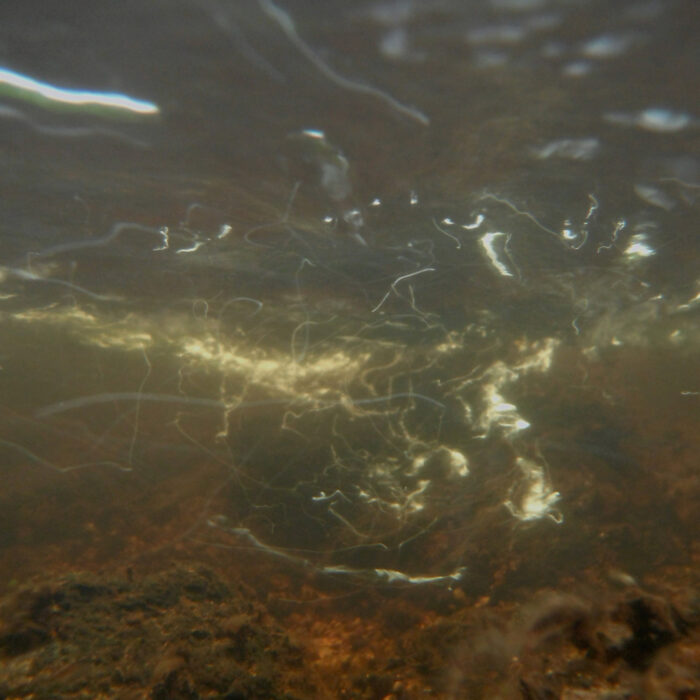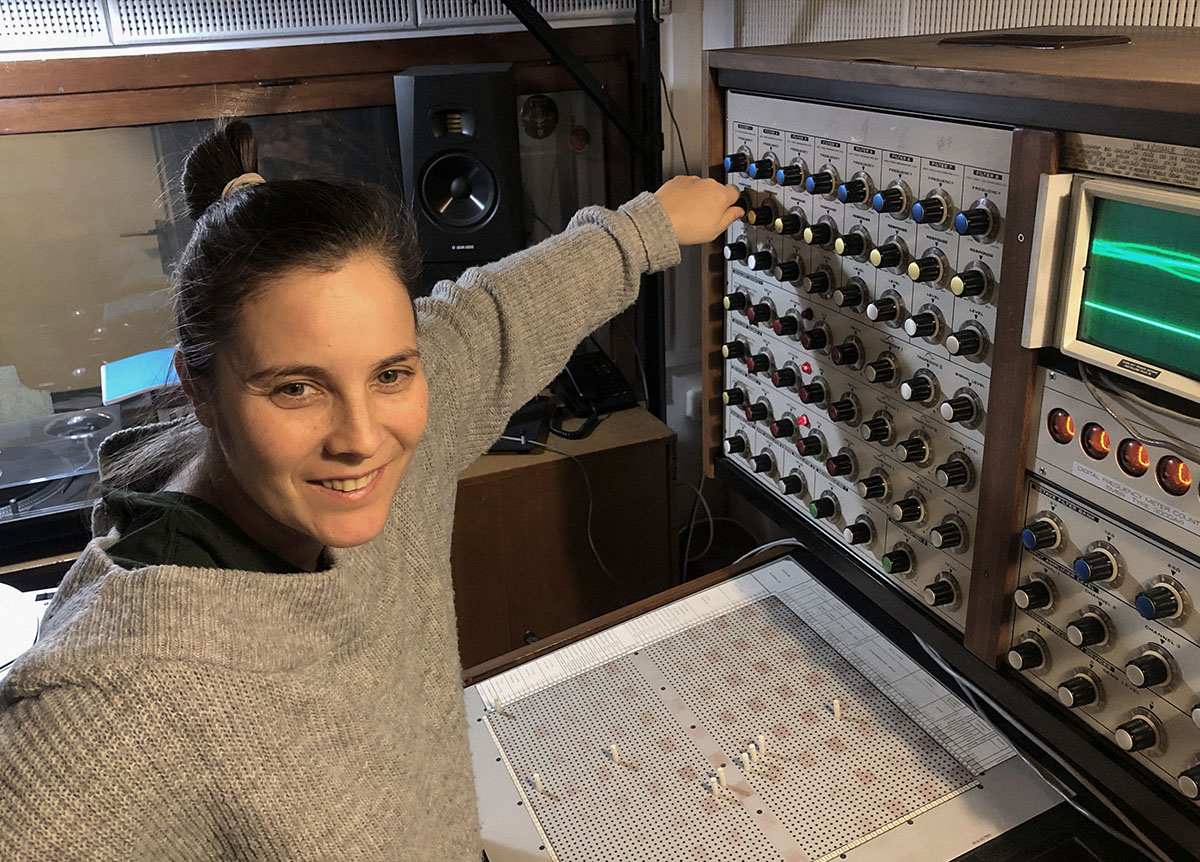The concept of ma in Japanese culture refers to negative space as a positive force: The emptiness that makes substance possible. In painting, this is the blank canvas that surrounds the subject, but in music it is the silence from which sound emerges. Judging from the list of sounds on Manja Ristić’s Ma, there shouldn’t be much empty space to be found: It includes a giant anthill, a cricket chorus, a lake, a river, a boiler, the men’s restroom in a museum, and even the space probe Cassini. Yet somehow, Ristić organizes these disparate sources into two perfectly serene long-form tracks. We start out on Earth with “the ant & the cricket,” an intimate look into the titular insects’ tiny world. Then “full moon trembles on the surface of the creek” takes us into outer space, slowly descending into a burbling underwater world. At first glance, Ma seems the equivalent of a great expanse of white canvas, but closer examination reveals an intricate design of immense complexity.
—daily.bandcamp.com
+
Ma is a very different sort of recording, with a diverse set of sound sources: some natural (an anthill, a silent lake, a river), some mechanical (ventilation in the men’s toilet of the Museum of Contemporary Art Ljubljana, recorded by Mark Vernon), the electro-magnetic field of a broken socket, “Dad’s boiler”) and some overtly musical (bowing cymbal, violin). In a way, this release is also collaborative, as Abby Lee Tee makes a contribution and breath and tape recorder hum are extracted from Toru Takemitsu.
Ma is a Japanese concept that refers to the void between things, which may refer to the distance between objects, the space between notes, or the suspension of time. On this album, Ristić investigates the relationships between sounds and environments, expanding on the idea of the mystical. The sense of solace is transferred from the monks back into nature, which ebbs and flows with its own harmonies and densities. The space between the chirps of a cricket and the tweets of a bird hold a different significance for the creatures themselves; the full moon affects the tides, the human body and the resonance of instruments. The gap between the known and the unknown ofers comfort to the seeker. one can never know it all, which means one can always learn and grow.
Ma may be the most intensely calming of Ristić’s releases, a journey from the home to the river, from the earth to the moon, compressed until all distances seem to disappear. The artist calls the effect a “Ma of the soul.” Over the course of these two albums, she has experienced a form of transcendence, and translated it into sound.
—acloserlisten.com
+
Like Bernhard Günter or the late Steve Roden, Serbian sound artist Manja Ristić makes music for people with keen ears. Even the most perceptive listener will need to turn the volume dial considerably past its usual resting place in order to appreciate the depth of the sound world she conjures. But once you do, what a world it is: an endless field of the gentlest fizz and drone, of crickets and birdsong but also industrial hum, a million frequencies from across the cosmos weaving into a single rippling membrane. (As I listen, a considerable tramuntana wind is whipping against the windows, adding its own whine to the chorus, which feels appropriate; Ristić’s field-recorded collage feels open to the possibility of aleatory collaborations.) The sources of her music, as detailed in the album notes, are staggering: a giant anthill in an abandoned forest quarry; hydrophone recordings of rivers and lakes; a bowed glass vase; a broiler; the electromagnetic field buzzing around a broken socket; the ventilation system in the men’s restroom in Ljubljana’s Museum of Contemporary Art. These, then, are not scientific studies; they’re impressionistic glimpses of the world around the artist, fused into a softly shimmering four-dimensional soundscape—a poetics of pure vibration.
—Philip Sherburne, futurismrestated.substack.com
+
Ähnlich gelagert und ebenso gelungen ist “Ma” (Line) von der serbischen KlangKneterin und ElektroAkustikerin MANJA RISTIĆ. Die hat in einen merkwürdig schwebenden, hallenden, kaum modulierten und doch latent angriffslustigen SanftDrone einige kleine Zwitschereien eingebaut – das erste der beiden Stücke heißt nicht ohne Grund “The Ant & The Cricket”, denn das hinter dem hydrophonen drone liegende Zirpen und Knuspern stammt tatsächlich von einem “giant anthill in the abandoned forest quarry” und einem “Cricket chorus next to Pohořský rybník lake”. Es folgt ein latent blubberndes Stück mit dem sprechenden Titel “Full Moon Trembles On The Surface Of The Creek” und dazu die Zen-hafte Weisheit: “Nothing is necessary. Nothing holds everything together.” Oh ja! 5/5
—westzeit.de



